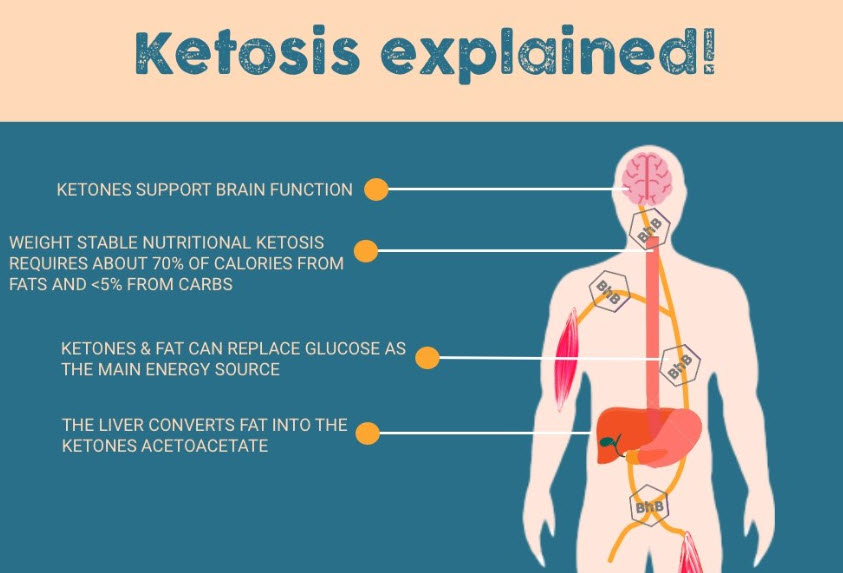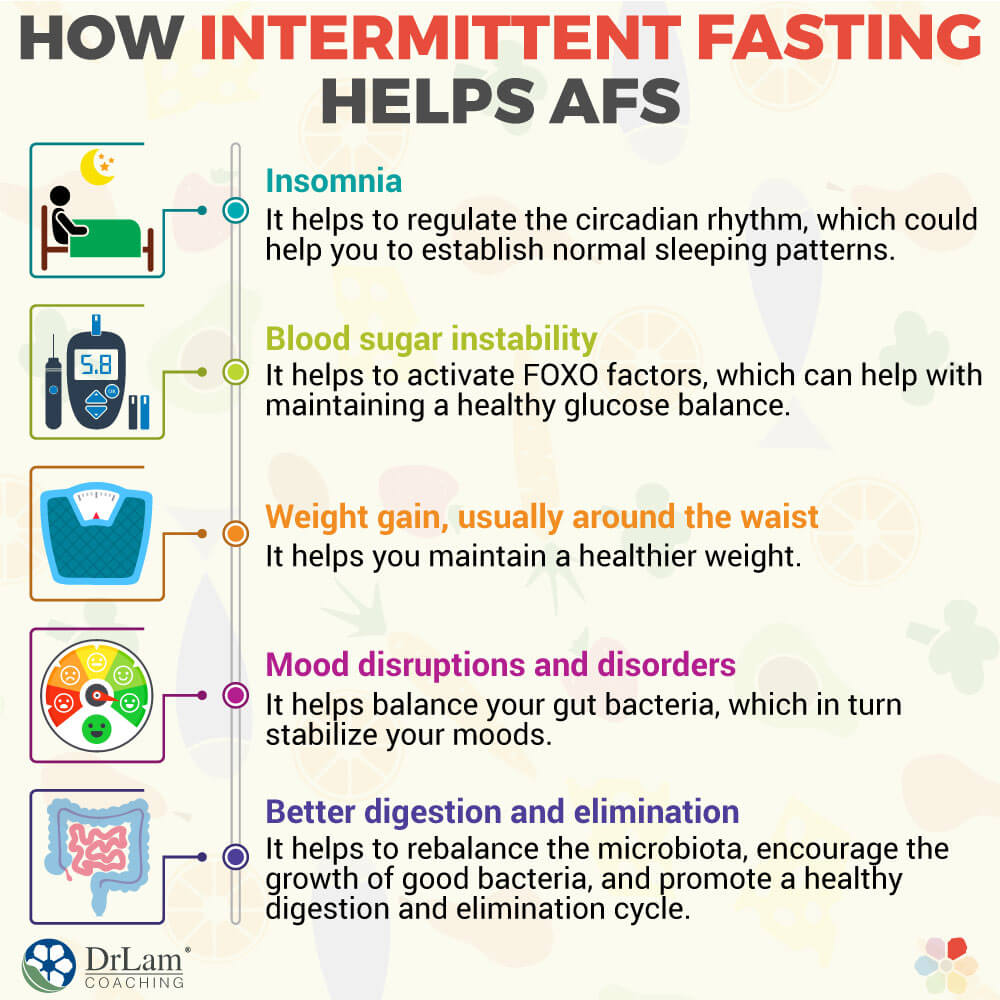
If you’re looking to boost your gut health, then intermittent fasting could be just what you need. New research has shown that fasting can have a positive impact on the composition of your gut microbiome.
It also increases the diversity of the bacteria living in your gut. This is important for keeping your immune system healthy and preventing diseases such as obesity and diabetes.
How Does Intermittent Fasting Affect Gut Health?
Intermittent fasting is a popular way to enhance overall health, but new research suggests that it may also affect gut health. The gut microbiome is an essential part of the human body and plays important roles in metabolism, immune function and overall health.
However, a dysbiotic gut microbiome can cause many health problems, including chronic diseases such as obesity and diabetes. This is why it’s crucial to maintain a healthy diet and lifestyle that support your gut.
Interestingly, intermittent fasting can have an impact on the gut microbiome in healthy mice. A study involving mice found that daily 16 h fasting led to changes in gut microbiota, but these effects faded after the duration of the fast was discontinued.
To understand how a fasting protocol influences the gut microbiota, fecal samples were collected from mice before and after different daily fasting hours, as well as from mice during the course of a month. They were analyzed by 16S rRNA gene-based sequencing.
How Does Intermittent Fasting Help With Weight Loss?
Intermittent fasting has been shown to help people lose weight by focusing on when they eat rather than what they eat. It also has many other benefits for metabolic health, including reducing the risk of heart disease.
There are a number of different styles of intermittent fasting, so it's important to find one that fits your lifestyle and preferences. Popular styles include alternate day fasting, the 16/8 intermittent fasting plan, and the 5:2 diet.
A few studies have found that intermittent calorie restriction can lead to weight loss, but it is usually only effective in the short term. For example, in one study, participants lost an average of 2.4% of their body weight while on an intermittent fasting diet.
However, some researchers believe that this method may not be the best way to shed weight long-term due to the fact that it may cause people to overeat during their non-fasting days. This is why some people revert to their old eating habits and end up gaining the weight they've lost back.
How Does Intermittent Fasting Help With Auto-Immune Issues?
If you have autoimmune issues, then intermittent fasting can be especially helpful for boosting your gut health and improving your immune system. Autoimmune diseases are a result of your body’s immune system misidentifying healthy cells as harmful threats and initiating an inflammatory response.
Intermittent fasting helps reduce intestinal permeability, also known as leaky gut, which is the precursor to autoimmune disorders. This is done by limiting the amount of toxic and inflammatory foods you eat, and by “sealing the leaks” in your gut lining.
A new study shows that a diet involving periods of fasting can help reverse the symptoms of autoimmune conditions in mice and humans! The team is now moving into larger clinical trials, so be sure to keep an eye out for more research in the future!
It is believed that dietary interventions manipulate immune cell functions by modulating nutrient metabolism. These interventions can include calorie restriction, time-restricted feeding and fasting.
How Does Intermittent Fasting Help With Mental Health?
Intermittent fasting has many benefits, including reducing blood pressure and improving brain function. It also increases levels of a hormone called BDNF, which may have an effect on depression and other mental health problems.
In addition, intermittent fasting may help reduce levels of cortisol and other stress hormones. This can help prevent depressive and anxiety symptoms.
It also helps improve gut microbiota by reducing inflammation and intestinal bacteria that can be detrimental to mood.
Studies have shown that people with mild depression who regularly fasted were able to reduce their depressive symptoms. They also performed better on cognitive tests.
It can also help to reduce stress and increase self-control. However, if you have a mental health disorder or have had an eating disorder in the past, you should talk to your doctor before attempting to fast.
Frequently Asked Questions
What do the studies say about intermittent fasting, weight loss and weight gain?
The potential benefits of intermittent fasting can be amazing for weight loss. Studies suggest that varying your eating patterns throughout the day may benefit overall health and weight management. Studies also show that structured fasting can increase metabolism, decrease food cravings, promote fat loss, and reduce inflammation.
Intermittent fasting can be a very interesting concept. It is based upon several physiological processes and designed to improve health outcomes, as well as aid in weight loss. Recent studies show that intermittent fasting is linked to improved insulin sensitivity and cellular repair, as well as an increase in hormone balance and metabolic functions. There are also positive changes in the bacterial population.
These changes offer promise for anyone looking to change their lifestyle or add an additional tool to help them lose weight. For those who want to manage their long-term goals effectively, increased energy levels and mental clarity are benefits.
Evidence pointing to positive hormone balance via fasting protocols, which keeps hunger hormones in check and prevents overindulgence or deprivation, is equally impressive. This allows for optimal caloric intake and maintains your goals for physical activity.
Based on scientific research and conclusions, it is possible to build a solid plan of actions that works.
What is the most effective way to do intermittent fasting for weight loss?
Intermittent fasting, at its core is about changing how you eat. It is a system of timing your meals to burn fat and lose weight effectively. Regularly cycling between periods of fasting and eating can help optimize your metabolism, potentially leading to better outcomes for your health.
Which intermittent fast patterns are most effective for weight loss? Many different strategies may work depending on your goals and lifestyle.
If you are looking for a moderate lifestyle shift, the 16:8 method might be right for you. This method involves fasting for 16 hours straight and then eating all of your meals within an 8-hours time window -- typically ending it with an early dinner or evening snack. This strategy allows you to ease into the process while still making some noticeable progress regarding weight maintenance or loss.
For those who are looking for radical transformation, you might consider the 5:2 Intermittent fasting diet. This means that you fast for two days per week and eat normal calories the rest of the week. It is important to aim for nutrient rich foods and not restrict your calorie intake on non-fasting nights. With such a demanding pattern, discipline is essential. By tracking macronutrients as well as understanding why you need them, you can achieve your desired results much faster.
You must be consistent no matter which method you use to achieve Intermittent Fasting results! Although one person may prefer strict adherence to IF, another person might be more successful when focusing on healthy eating whole foods.
How much weight do you need to lose in a week by intermittent fasting
How much weight should you try to lose during your weekly intermittent fasting? This requires thoughtful reflection.
Balance is the key. Overly aggressive goals can lead to burnout or injury. Your lifestyle factors, such as sleep, nutrition, and hydration should all be considered when planning your weight-loss goals. Counting calories might be a helpful tool, but it should not become the sole focus of your plan.
Second, consider what type of results you are able to achieve. A loss of more than 1-2kg per week can put undue stress on your body. While a smaller amount could result in little or no visible changes, a greater weight loss could be detrimental to your health. Measurements of the body are a better way to track progress than just watching the scales change.
Talk with a professional dietitian to get additional support throughout your journey. Talking to an objective person can help you ensure that your goals are safe and reachable with sustainable results.
Is 16/8 intermittent fasting right?
Examining intermittent fasting and your particular lifestyle can be a critical deciding factor when making dietary changes. 16/8 intermittent eating is a method that allows you to fast for 16 hours and eat within an 8-hour time frame. Intermittent fasting is known to have many health benefits. However, it is important that you research it and decide if it is right for your needs.
It will be easier for you to make this choice if the details of 16/8 Intermittent Fasting are well understood. The aim is to reduce total calorie consumption, without feeling restricted or uncomfortable. This can be as easy as skipping meals throughout the day or eating only certain times of the day. Understanding how much food you need and how often will help you create an optimal plan to stay on track with your nutrition goals.
Understanding your body's needs is the first step to determining whether 16/8 would be a good fit. Considerations such as activity levels, hormonal imbalances and medical conditions, stress levels, genetics, age, and genetics all come into play when assessing one's diet and food choices. It is possible that intermittent fasting is not the right choice for you. Many diets are available, from low-carb to high fat and healthy eating plans. So don't let it discourage you if one doesn’t suit your needs.
Everybody is different. You can choose to put as much effort and energy into researching all diet options in order to find the one that suits you best. You can assess your body and decide if 16/8 intermittent Fasting is right for you.
What length of fast should I keep for intermittent fasting in order to lose weight?
Intermittent fasting for weight loss requires that you examine your motivations and set realistic goals. While fasting for extended periods can lead to rapid weight loss, it may not suit everyone.
You can integrate intermittent fasting into your life with success by deciding how frequent and how long you should fast. How many hours or days can you commit per week? It will depend on what type you want of routine, whether it is daily 16-hour-restricted nutrition or one to seven days of fasting, as well as factors like your current level of physical activity and health status.
Listening to your body is the most important thing. You should assess your appetite and energy levels during the day. Not all diets are suitable for everyone. If a particular regime isn't working for you, feel free to experiment and find something that does work; there are countless dietary variations, including eating two meals a day or semi-fasting.
Intermittent fasting, when done correctly, can give people greater feedback about their bodies. This provides insight into possible dietary triggers that could lead to inflammation and disease prevention. It also integrates a practical framework for leading a healthy life; being mindful about when meals are consumed brings innate value over time by taking us out of our comfort zones and motivating us towards personal success with our desired health outcomes in mind.
What foods should you avoid while on intermittent fasting
Intermittent fasting is best when you are strict about your abstinence. Sticking with your plan requires you to cut out certain food groups that could sabotage your efforts.
Sugary snacks, processed foods, sugary drinks, and unhealthy snacks can all make a difference to your fasts' success. You can avoid sugary cereals as well as candy bars, icecream and other sweets.
Saturated fats must be completely removed from the plate. To minimize health risks, you should avoid fried foods, fatty meats, and processed dairy products such as cheese and heavy cream. You should avoid foods containing refined carbohydrates like chips and white bread while fasting.
Also, avoid alcohol during fasting periods. These empty calories can make it difficult to lose weight through intermittent fasting. You will be consistent if these guidelines are followed.
Coffee break or fast?
As part of their health and nutrition, more people are adopting fasting. It can be difficult knowing what you can consume while fasting so that you get all the benefits. What is coffee considered to be a fast?
This question is complicated because everyone reacts differently to coffee depending on how much they drink, their caffeine intake, and other factors. Pure black coffee should not disrupt your fast in any way. However, it is important to consider whether you would be able to tolerate creams and sugars.
It is important to observe how your body responds to coffee during fasting. Some people might experience problems with their fat-burning abilities if they consume caffeine during a prolonged fasting period. This should not be a cause for concern. Talk to your healthcare provider or dietician if it becomes a problem.
You should also be aware that specialty and flavoured coffees can contain calories, which could break a fast if consumed in moderation. Keep your fasting ritual intact by making a perfect cup with plain coffee or espresso shots.
Overall, researches suggest that small amounts of black coffee are unlikely to disrupt a fast. While it's best to choose what is right for you, be sure to keep an eye on any unwanted side effects (e.g. stomach aches or headaches) when fasting.
Statistics
- When diet composition was controlled, most protocols were consistent with Health Canada and American Heart Association guidelines: 55% carbohydrates, 20% fat, and 25% protein. (ncbi.nlm.nih.gov)
- When diet composition was controlled, most protocols were consistent with Health Canada and American Heart Association guidelines: 55% carbohydrates, 20% fat, and 25% protein. (ncbi.nlm.nih.gov)
- consumption was examined in 1 study, which compared dietary fat intake of 45% versus 25% at the expense of carbohydrate intake. (ncbi.nlm.nih.gov)
- IF trials found weight loss of 0.8% to 13.0% of baseline weight with no serious adverse events. (ncbi.nlm.nih.gov)
External Links
pubmed.ncbi.nlm.nih.gov
- Intermittent fasting: Does it have a place in diabetes treatment? PubMed: Review of the literature and guideline for primary care physicians.
- Daily Fasting Improves Health & Survival in Male Mice Independently from Diet Composition or Calories – PubMed
nejm.org
jamanetwork.com
doi.org
- Nutrients
- 24-Hour Fasting in Diabetes: A guide for physicians advising patients regarding medication adjustments prior religious observances (or other outpatient surgical procedures). Grajower – 2011, Diabetes/Metabolism Research & Reviews – Wiley Online Library
How To
Sticking to an Intermittent Fasting Schedule: Tips and Tricks
Intermittent fasting can be used to help you lose weight or improve your health. While intermittent fasting can improve your health and help you reach your goals, sticking to a consistent schedule can be challenging. Here are a few tips and tricks to help you stay on track:
-
Choose a routine you like: Everybody is different so it's important you find one that works. Some people prefer to have their meals earlier than others and then fast over the night. Others prefer to eat breakfast in the morning and eat dinner later. Experiment with different routines to see what works best for you.
-
Healthy snacks are important: If you are fasting for a long time, it is essential to keep your body nourished. To help keep your energy level up and your hunger in check, have healthy snacks like nuts, seeds, and fruits on hand.
-
Plan: Planning will make it easier to stick to an intermittent fasting plan. For your convenience, you can prepare meals in advance and pack healthy snacks for work or any other activity to keep you on track.
-
You can stay hydrated by drinking plenty of water. Take 8-10 cups of water every day, and you might consider adding in other low-calorie, hydrating drinks like unsweetened tea or herbal tea.
-
Flexibility is a virtue: You can be flexible with your intermittent fasting program. Life happens and you might need to change your routine from time to time. You can always get back on track quickly and don't be discouraged if you make mistakes.
Sticking to an intermittent fasting schedule can take some practice and dedication. However, with the right mindset as well as a few helpful strategies it is possible to make intermittent fasting an integral part of your daily life. You can create a routine that suits you and helps with your health goals by trial and error.
Resources:
 |
Intermittent Fasting Guide for 2022 | Doctor Mike HansenIntermittent Fasting Guide for 2022 | Doctor Mike Hansen Did you know that it's been predicted that by 2030, more than half of the U.S population will be |
 |
How to do Intermittent Fasting: Complete GuideJoin my Email List: https://www.thomasdelauer.com Check out Thrive Market: http://ThriveMarket.com/Thomas Follow More of My […] |
 |
Intermittent Fasting Myths - Top 5 | Jason FungI cover the most important myths about intermittent fasting and why they are not true. Check out my website at https://www.doctorjasonfung.com and blog at |
 |
How Intermittent Fasting Affects Your Body and Brain | The Human BodyStars like Beyonce and Hugh Jackman have spoken out about following intermittent fasting plans to get in shape. How does intermittent fasting work? Here's what |
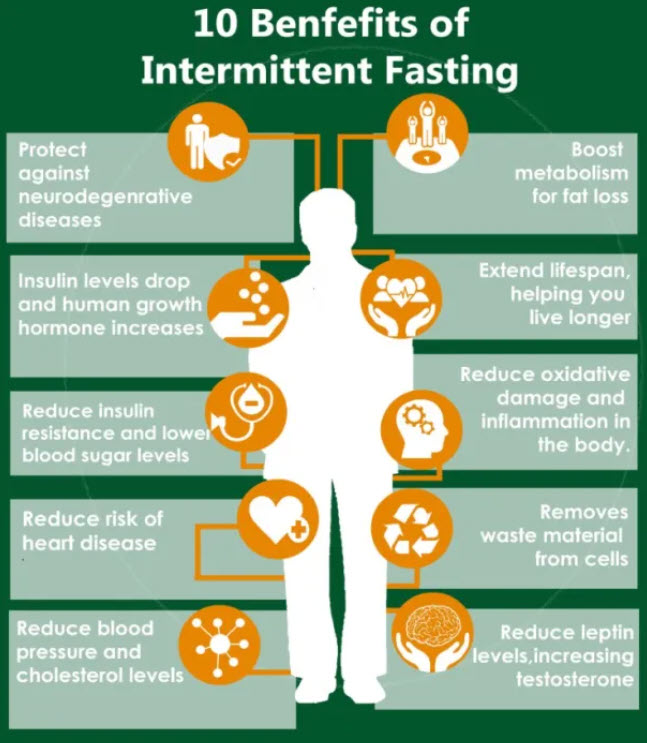 |
Intermittent Fasting For Weight LossWeight loss with Ketosis |
 |
How to Start Intermittent Fasting in 2023 - UPDATED INFORMATION & SCIENCEJoin Thrive Market Today to get 30% Off Your First Order AND a Free Gift Worth up to $60! http://ThriveMarket.com/Thomas How to do Intermittent Fasting in |
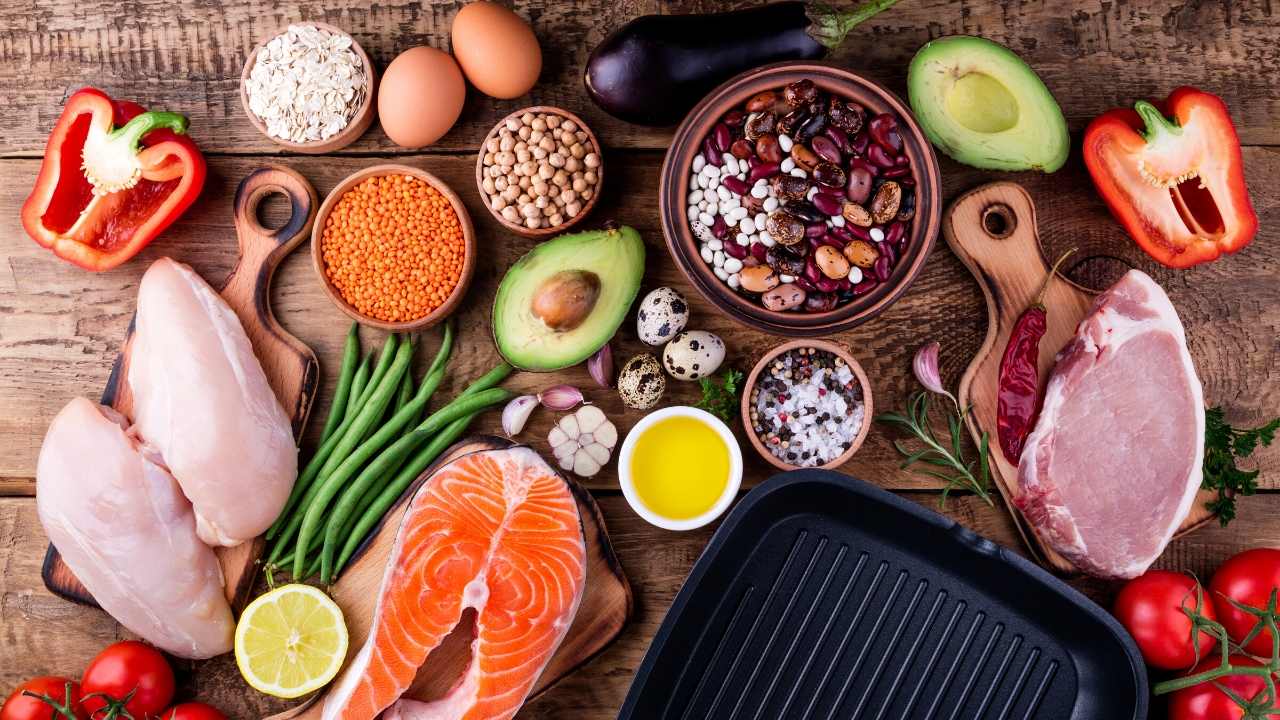 |
What is intermittent fasting?What is intermittent fasting? Learn all about it in our video course with one of the world's top experts, Dr. Jason Fung. Watch the first part above. Part |
 |
Effects of Fasting & Time Restricted Eating on Fat Loss & Health | Huberman Lab Podcast #41This episode I discuss the science and practice of fasting also called time-restricted feeding. I review the data on how limiting food intake to specific |
 |
Dr. Oz Explains Intermittent Fasting | TODAYIt’s the latest diet trend: eating only during certain specified windows during the day. Carson Daly and Savannah Guthrie have been trying it, and Dr. Mehmet |
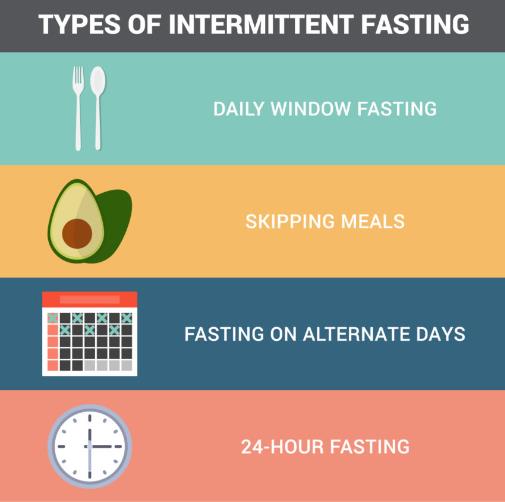 |
Intermittent Fasting For Pregnant WomenWhile intermittent fasting for pregnancy has its benefits, it can also be dangerous. Read on to learn more about the risks and benefits of.. |
 |
Intermittent Fasting: Handle Your Health Problems The Natural WayIntermittent fasting is an age old practice that has recently gained mainstream attention for its widespread success in helping relieve various health problems. |
 |
New study finds no benefit to intermittent fasting l GMAScientists discover there may be zero benefit to the popular "intermittent fasting" diet. SUBSCRIBE to GMA's YouTube page: https://bit |
 |
Intermittent Fasting 8/16You may have heard of the intermittent fasting 8/16 or 12/12 time restriction. This type of fast requires you to go without eating or drinking for.. |
 |
Intermittent Fasting For WomenSide effectsWomen who are looking for a way to lose weight can try intermittent fasting. However, there are several side effects to this type of.. |
 |
How Autophagy WorksAutophagy is a dynamic degradation system that promotes tumor survival. It also promotes the growth of established tumors and facilitates metastasis. .. |
 |
How Much Cholesterol in a DayHow much cholesterol in a day depends on a number of factors. While dietary cholesterol is not necessarily bad, excess intake can lead to serious.. |
 |
The Benefits of the AIP DietThe AIP diet has a number of health benefits. Besides reducing inflammation and weight, this diet also provides essential nutrients. These include.. |
 |
Is Eating Only One Meal A Day a Good Idea?Eating only one meal a day is not a good idea, and it is not sustainable for most people. It may help some people lose weight, but for the average.. |
 |
What Are the Side Effects of Water Fasting?Water fasting is a form of fasting, where a person consumes only water during a period of time. It may be undertaken for medical reasons or for.. |
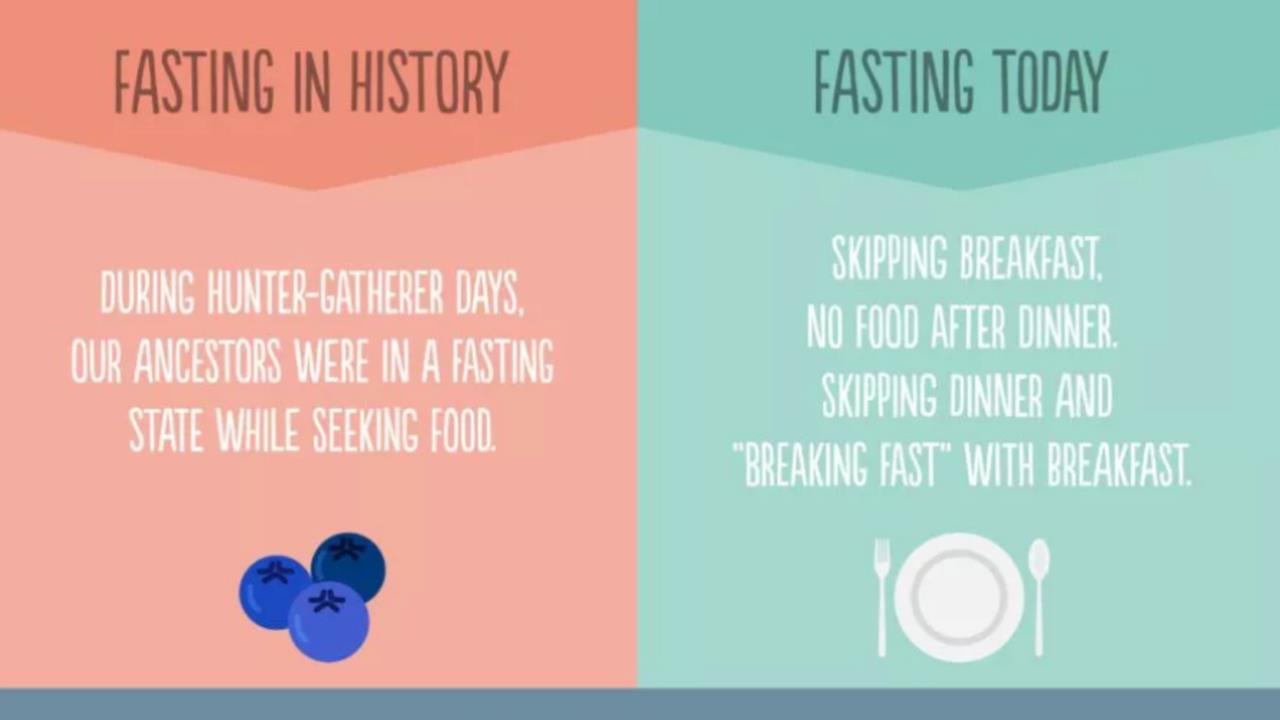 |
Is Skipping Breakfast Right For You?Skipping breakfast has a number of benefits, including the ability to lose weight, improve training performance, and increase growth hormone levels... |
 |
Intermittent Fasting and Blood PressureResearchers have discovered that intermittent fasting may have positive effects on blood pressure. Blood pressure affects the risk of heart disease,.. |
 |
Is it Okay to Drink Coffee on Intermittent Fasting?You might have heard that it's okay to drink black coffee on intermittent fasting. But did you know you can also enjoy a cold brew? What about.. |
 |
How to Start Fasting 48 HoursIf you are considering fasting 48 hours, here are some of the benefits. There are also a few precautions you should keep in mind before you begin. In |
 |
A Psoriasis Diet Can Help Reduce the Severity of Your PsoriasisA psoriasis diet should consist of eating foods that are rich in vitamin A and C, as well as avoiding sugars and processed foods. Avoid eating red.. |
 |
Intermittent Fasting For Weight LossAll you need to know about Intermittent fasting and weight loss |
 |
The DASH Diet to Prevent HypertensionThe DASH diet is an eating plan that was developed by the National Heart, Lung, and Blood Institute. It focuses on fruits and vegetables, low-fat.. |
 |
Intermittent Fasting AppsIf you're on an intermittent fasting regimen, it's important to keep track of your food and exercise intake. Several apps can help you stay on track.. |
 |
Time Restricted EatingIf you're interested in losing weight or improving your health, you may want to try Time-restricted eating or intermittent fasting. Read on to learn.. |
 |
Reactive HypoglycemiaThere are several different ways to treat reactive hypoglycemia. The first step is to reduce or eliminate your caffeine and alcohol intake. You may.. |
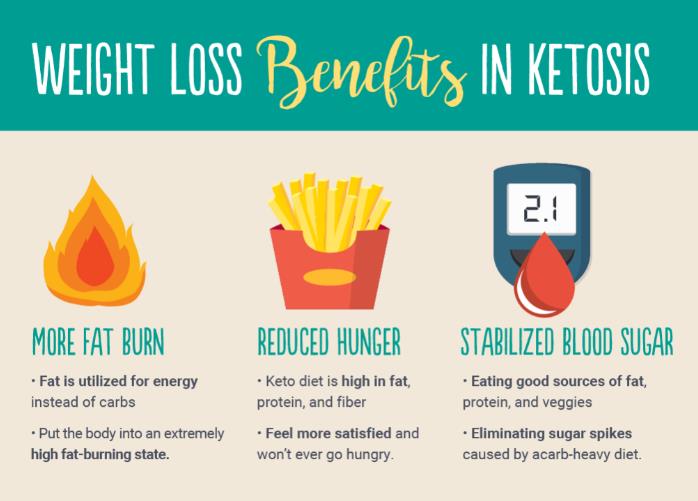 |
LIFE Fasting Tracker - LIFE Apps | LIVE and LEARNThe best, and free, intermittent fasting tracking app for iPhone and Android. Easy to use. Supports all fasting types. Fast with friends. Download for Free. |
 |
Low-Carb Meal PlansLow-carbohydrate meal plans are based on limiting the amount of carbohydrates you eat. Instead, you replace foods that are high in carbohydrates with |
 |
How Autophagy WorksAutophagy is a dynamic degradation system that promotes tumor survival. It also promotes the growth of established tumors and facilitates metastasis. |
 |
The 12-Hour Fast - What Are the Benefits of a 12-Hour Fast?The 12-hour fast is a popular dietary approach that can help you lose weight. It forces your body to rely on its stored fats for energy. It has also.. |
 |
Fasting Before Working OutFasting before a workout has its advantages. Not only does it provide more energy during a workout, it can also help with digestion, which can take.. |
 |
Intermittent Fasting: What is it, and how does it work?Intermittent fasting involves switching between fasting and eating on a regular schedule. This type of fasting could manage your weight or even some forms of |
 |
Healthy Ways to Lose WeightLosing weight is a great way to improve your health and reduce your risk of certain conditions. It can also reduce your total cholesterol levels and.. |
 |
Top Intermittent Fasting AdvantagesThere are many advantages to intermittent fasting as a strategy for weight loss. Intermittent fasting can work with any diet... |
 |
Weight Loss (Low Carbohydrate Diets)Low carb diets have often been used throughout history for weight loss. Although sometimes called a fad, low carb diets have actually more science... |
 |
Intermittent Fasting 101 — The Ultimate Beginner's GuideThis is a detailed guide to intermittent fasting (IF). Studies show that it can help you lose weight, improve health and perhaps even live longer. |
 |
The Key Factors of Weight LossWeight gain and obesity, like any medical disease, is multifactorial. This means that there are many factors that cause weight gain... |
 |
How Doctors Lose WeightHow do doctors lose weight? For their patients, doctors often advise following standard diets, but when trying to lose weight themselves... |
 |
Vacation Weight Loss PlanWhat is the best vacation weight loss plan? Most people [...] |
 |
Should I (lean-) Bulk or Cut?Should I (lean-) Bulk or Cut? |
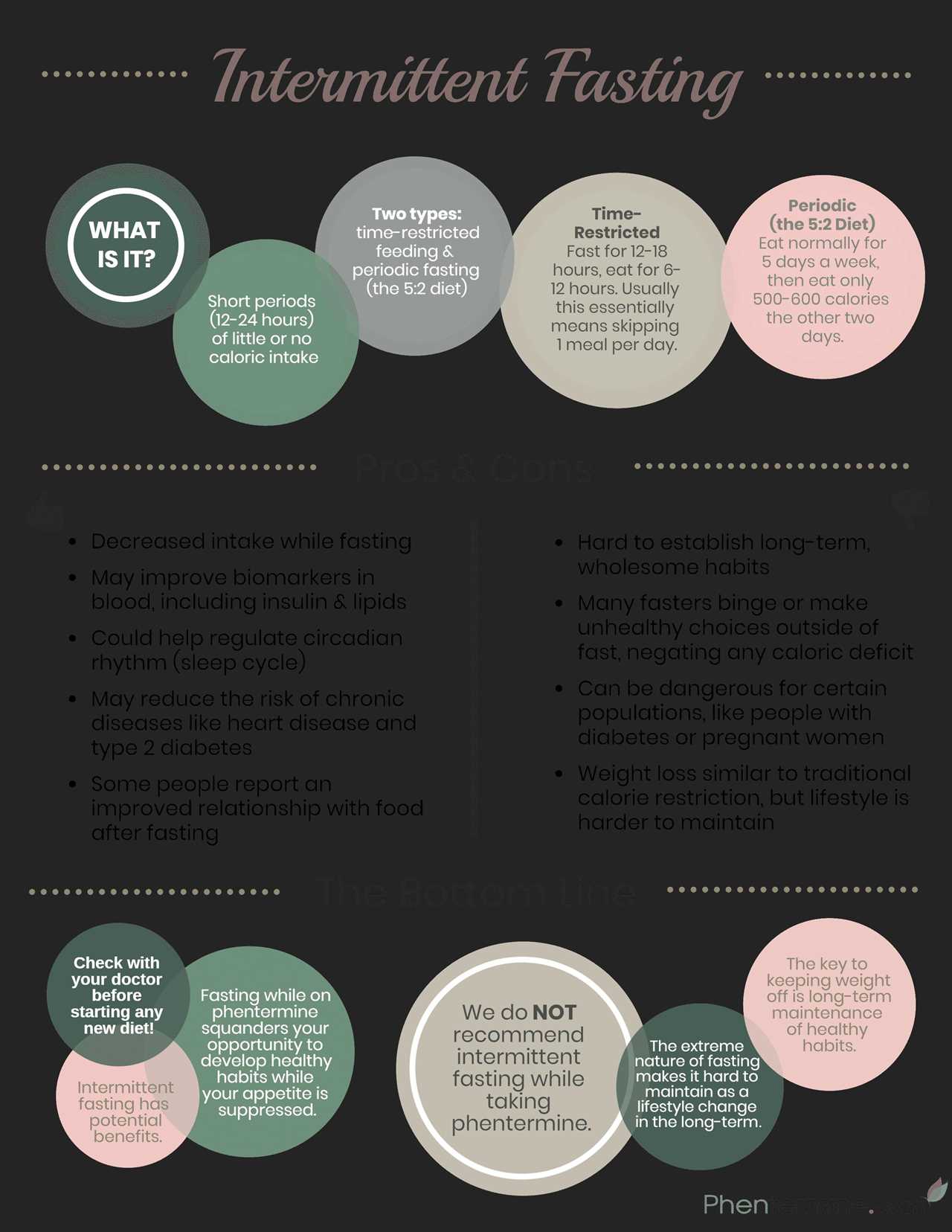 |
Is intermittent fasting good for you?Intermittent fasting isn't new, but it's gaining followers. What's the appeal? |
 |
100lbs down!100lbs down! |
 |
Calculating the Maintenance calories on workout and rest daysCalculating the Maintenance calories on workout and rest days |
 |
How to perform body recomp without counting calories?How to perform body recomp without counting calories? |
 |
Leangains ToolsLeangains Tools |
 |
Intermittent fasting: The positive news continues - Harvard HealthHarvard research about Intermittent fasting ... |
 |
Rat Model: Intermittent Fasting Normalizes High Blood Pressure Induced by Harmful Intestinal BacteriaPrevious studies have shown that a harmful combination of gut bacteria can cause high blood pressure (hypertension) in humans and other animals. Having a |
 |
Your D-I-E-T Meditation PlaylistIn my TEDx talk, I suggest recasting the noxious word “diet” into D-I-E-T — a reminder to ask ourselves “Did I Enrich Today?” One of the ways we can enrich…The |
 |
Holiday Health (Damage Control)With the holidays on us, maybe your intermittent fasting schedule isn’t as rigorous as it once was. That’s not necessarily a bad thing, because social |
 |
You Got a Zero.Zero’s not been my hero. Through grade school and college, zeroes used to be something of a monster in my mind. Teachers illustrated just how bad a zero is |
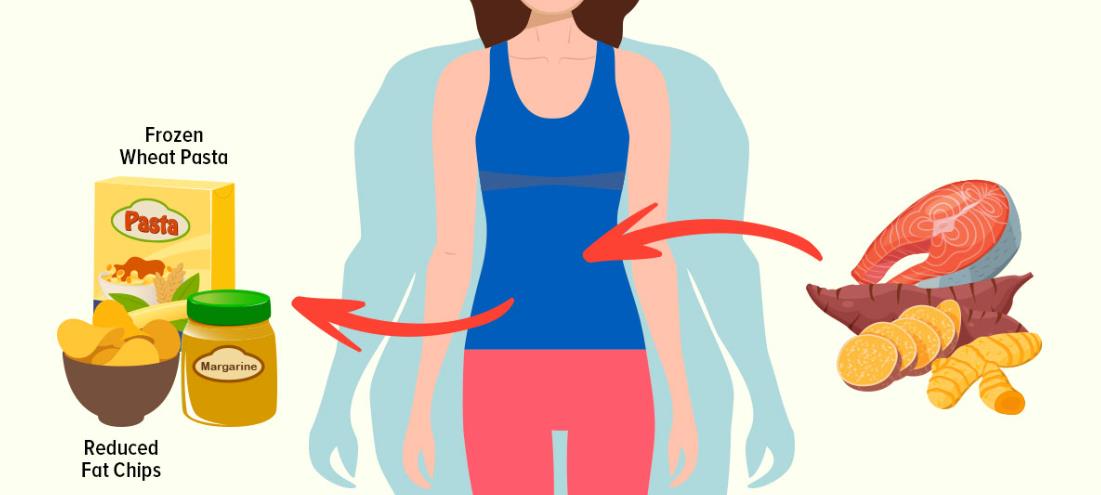 |
Six ways to do intermittent fasting: The best methodsIntermittent fasting is an increasingly popular diet option for weight loss. There are several programs, but this guide can help you find out which one is |
 |
Intermittent Fasting ExperiencesI took part in an energetic discussion of intermittent fasting experiences as part of the release of Women Action Takers Who Gained By Losing for which I wrote |
 |
How to Break a Fast: What to Eat After FastingHow to Break a Fast: What to Eat After Fasting Written by Stephen Anton PhD on May 15th, 2022 How to break a fast? This is an excellent question and one |
 |
How to Believe in Yourself: 10 Tips for Becoming Your Best SelfHow to Believe in Yourself: 10 Tips for Becoming Your Best Self Guest Post by William Anton PhD on June 12th, 2022 William D. Anton, Ph.D is a renowned |
 |
36-Hour Fast (Monk Fast): Everything You Need to Know36-Hour Fast (Monk Fast): Everything You Need to Know Written by Stephen Anton PhD on July 5th, 2022 The 36-hour fast is a challenging fast in that it |
 |
Diet A to Z: Intermittent FastingThe two-day-a-week diet: How intermittent fasting can help you lose weight and boost your health. |
 |
18/6 Intermittent Fasting: Is It the Right Plan for You?18/6 Intermittent Fasting: Is It the Right Plan for You? Written by Stephen Anton PhD on November 29th, 2022 Intermittent fasting has become one of the |
 |
20/4 Intermittent Fasting: The Pros and Cons of a Longer Fast20/4 Intermittent Fasting: The Pros and Cons of a Longer Fast Written by Stephen Anton PhD on January 25th, 2023 There are so many different approaches to |
 |
Everything you need to know about the OMAD dietThe one meal a day (OMAD) diet is a type of time-restricted eating intermittent fasting protocol that involves—you guessed it—eating just one meal a day and |
 |
The ultimate guide to intermittent fasting 20/4When we’re trying to lose weight, we usually think about what we can and can’t eat. Bye-bye beer and burgers. Helloooo carrots and kale! But with intermittent |
 |
The Flexitarian Diet — A Beginner’s Guide by SimpleFrom workouts to working hours, most of us enjoy a little flexibility. So it’s no wonder that when it comes to what we eat, a little wiggle room goes a long |
 |
The Mediterranean diet for weight lossPeople have loved the Mediterranean diet for many years. It’s not a “weight loss diet,” per se. It’s just how people in places close to the Mediterranean Sea |
 |
The complete guide to 18/6 intermittent fastingIntermittent fasting (IF) regularly shows up as many health-seekers’ go-to eating plan, and for good reason. Research suggests that it could have a profound |
 |
The Impact of Different Drinks during Intermittent Fasting: Benefits, Downsides, and ResearchA common dietary strategy called intermittent fasting (IF) alternates between periods of fasting and eating. Apart for water, black coffee, and tea, people |
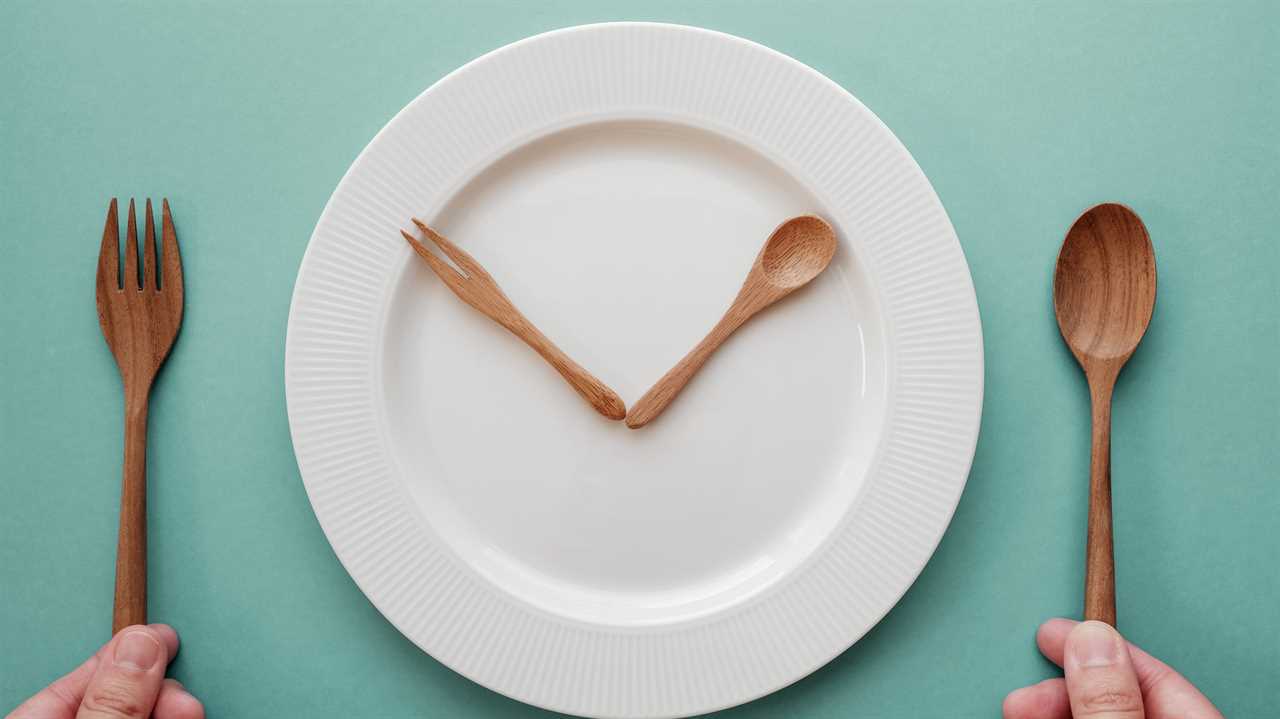 |
Intermittent fasting (IF): Your complete guide - Diet DoctorIntermittent fasting is popular, effective, and easy. This guide tells you how to get started with a successful intermittent fasting routine. |
 |
Intermittent Fasting and Muscle Gain: Benefits, Downsides, and ResearchA common dietary strategy for people who want to increase their muscle mass while also aiding fat loss is intermittent fasting (IF). Although IF has mostly |
 |
Burning Belly Fat: Intermittent Keto vs Intermittent Fasting – Which is More Effective?Visceral fat, commonly referred to as belly fat, is the fat that builds up around the midsection and is associated with a number of health issues, such as |
 |
When you’re ill, is intermittent fasting safe? Precautions and considerations.Those who want to reduce weight, get healthier, or even live longer are increasingly following the trend of intermittent fasting. Yet if you’re sick, you might |
 |
When Intermittent Fasting Stops Working: Reasons, Solutions, and EffectivenessRecently, intermittent fasting has become more well-liked as a technique to reduce weight, enhance general health and longevity, and even improve mental |
 |
5 Intermittent Fasting Methods, ReviewedIntermittent fasting comes in many shapes and forms. This article reviews its pros and cons so you can decide if it's worth a try. |


